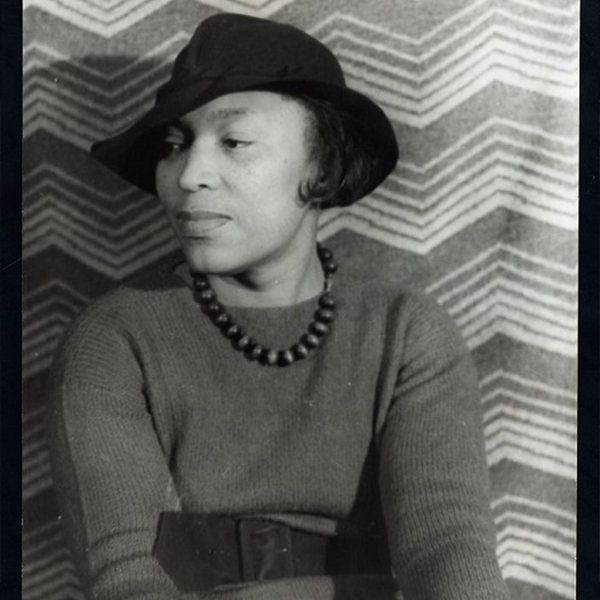Performances of Penelope have been cancelled for Tuesday, April 23 and Wednesday, April 24. If you had tickets to those performances, the Box Office will be reaching out with options for your tickets.

Blog: In the Key of the Blues - Zora Neale Hurston's Writing
“I know I cannot straighten out with a few penstrokes what God and men took centuries to mess up. So I tried to deal with life as we actually live it – not as the sociologists imagine it.”
– Zora Neale Hurston in a letter to a friend
One of the distinct aspects of Harlem Renaissance Zora Neale Hurston’s writings is her use of authentic black vernacular of the deep Jim Crow South. Born to sharecroppers and raised in Eatonville, Florida—the first incorporated African American town— Hurston’s use of dialect evokes the folk life and language of her childhood. Hurston was also a highly educated anthropologist, folklorist and ethnographer: she attended Howard University, was the first black graduate from Barnard College and performed graduate work at Columbia University. Through her work and studies, she would make frequent trips to the South—using an exacting ear and a recording device to precisely document the dialects and way of speaking of the people she met.
By combining traditional literary prose in standard English with phonetically written—rather than correctly spelled— dialogue flush with metaphor and simile, Hurston distinctly captures the dialect and culture of her 1920s and ‘30s African American characters. Her characters’ dialogue is full of vivid imagery, witty lyricism and popular slang. Hurston took great pains to ensure her characters’ language and speech patterns were authentic by weaving information she collected on her studies into her fiction. For Hurston, this was the only way to create real, human characters—and to honor her heritage and celebrate black culture.

Zora Neale Hurston in 1938
Many disagreed with Hurston’s linguistic approach, declaring that she was selling out to white audiences by turning African Americans into caricatures. Her most vocal critics were African Americans who feared her use of dialect made African Americans sound lowbrow and uneducated. Richard Wright, author of Native Son, denounced her writing in Their Eyes Were Watching God as a “minstrel technique” for the amusement of white audiences. Hurston was embittered by what she saw as her community’s rejection of their folklore’s value; and the criticism caused her works to gradually go out of print. She died penniless in 1960.
However, Zora Neale Hurston’s trailblazing ways later influenced writers such as Alice Walker and Toni Morrison. Rather than be seen as pandering to negative stereotypes, Zora Neale Hurston’s exacting use of dialect paints a rich portrait of people who transformed the English language into song—and preserves a moment in time. Hurston was an artist, a scholar, a collector of folklore with an ear for the poetry in the everyday—and a pioneer whose stories are, in the words of adapter George C. Wolfe, told in the key of the blues.
Hurston’s Glossary for A Story in Harlem Slang:
Air out: leave, flee, stroll
Bailing: having fun
Bam & down in Bam: down South
Battle-hammed: badly formed about the lips
Beating up your gums: talking to no purpose
Bull-skating: bragging
Collar a nod: sleep
Cut: doing something well
Diddy-Wah-Diddy: a far place, a measure of distance
Dumb to the fact: you don’t know what you are talking about
First thing smoking: a train
Frail eel: a pretty girl
Granny Grunt: a mythical character to whom most questions may be referred
July jam: something very hot
Jump salty: get angry
Piano: spare ribs
Scrap iron: cheap liquor
Solid: perfect
Stanch: to begin
The bear: confession of poverty
Zoot suit with the reet pleat: Harlem style suit, padded shoulders, 43-inch trousers at the knee with small cuffs, high waistline
Get Tickets to Spunk at Signature
Love Zora Neale Hurston and her work? Get tickets to Spunk, based on three of her short stories!